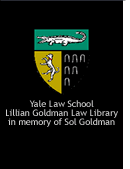
 |
 |
Role of the Legal Profession - produced by Yuval Miller & Rob Parker BOOKS AND ARTICLES ANNOTATED BIBLIOGRAPHY
Asmal, Kader, et al. Reconciliation Through Truth: A Reckoning of Apartheid's Criminal Governance (1997) Asmal, a key member of the ANC, explores South Africa’s past and the process of change with the critical eye that one would expect from his years of consummate campaigning for the cause of human rights.
Brooks, Roy L. When Sorry Isn’t Enough: The Controversy over Apologies and Reparations for Human Injustice (1999). Part 8 of this collection contains excerpts from transcripts of TRC amnesty hearings, and a collection of articles on the amnesty process.
Christie, Kenneth The South African Truth Commission (2000) This book provides a basic background on the TRC, containing a survey of arguments for and against amnesty.
Gastrow, Peter Bargaining for Peace: South Africa and the National Peace Accord (1995) This book explores the events leading up to the signing of the National Peace Accord, a network of peace committees that spanned South Africa from the local to the national level. The Accord was an unprecedented experiment that incorporated religious and business leaders into the country’s post-Apartheid transformation. The work examines the Accord’s effect on democratization, infrastructural development, and efforts to quell political violence in South Africa.
Krog, Antjie Country of My Skull: Guilt, Sorrow, and the Limits of Forgiveness in the New South Africa (1998) This book provides a critical account of the TRC. Written by a journalist who covered the hearings for two years, the book’s commentary on the Amnesty process goes beyond theory to give a grounded account of the hearings.
Rigby, Allen Justice and Reconciliation: After the Violence (2001) This book is an excellent look at post-conflict reconciliation in several key countries around the world. It examines the South African amnesty process in some detail, but effectively examines parallel processes in other post-Nuremberg solutions.
Rwelamira, R.W. & Werle, G. (eds) Confronting Past Injustices: Approaches to Amnesty, Punishment, Reparation and Restitution in South Africa and Germany (1996). Part I of this collection contains comparative essays on punishment and amnesty that help bridge a fifty year historical divide between the German and South African experiences.
Shea, Dorothy The South African Truth Commission: The Politics of Reconciliation (2000) Explains the ways in which the TRC’s design was informed by amnesty grants in other countries, and critiques the work of the amnesty committee in comparative perspective.
Tutu, Desmond No Future Without Forgiveness (1999) This book explores the relation between justice and forgiveness from both theological and legal perspectives. He also tells the story of Brian Mitchell’s plea for forgiveness and is presents a positive vision of the reconciliation process.
Villa-Vicencio, Charles & Doxtader, Erik(eds.) The Provocations of Amnesty: Memory, Justice and Impunity (2003) An excellent start for anyone interested in the amnesty process, this collection of essays explores a broad range of debates with a carefully developed perspective. This volume is not only well-edited and thorough, but also has the advantage of retrospect over many other works on the topic given its recent publication; it successfully nuances and troubles many earlier studies and debates.
ARTICLES
Allen, Jonathan Balancing Justice and Social Unity: Political Theory and the Idea of a Truth and Reconciliation Commission , 49 U. Toronto L.J. 315 (1999) This article discusses the moral defensibility of the TRC. He posits that the literature’s justice-based critiques of the Commission have been largely successful in defeating moral arguments in its defense. In response however, he formulates a new moral defense in response to those critiques, identifying several respects in which truth commissions may reach a worthy compromise between justice and unity.
Bhargava, Anurima Defining Political Crimes: A Case Study of the South African Truth and Reconciliation Commission ,102 Colum. L. Rev 1304 (2002). This student Note criticizes the inconsistent manner in which the Committee defined political crimes. Unlike the McCarthy article, infra—which argued that the political organization requirement should have been narrowly construed so as not to absolve indefensible human rights abuses—this article argues that the Committee should have construed the requirement broadly, considering the “totality of the circumstances.” Such a contextual treatment, it argues, would in the end have led to a more precise definition of political crime.
Daly, Erin Transformative Justice: Charting a Path to Reconciliation, 12 Int'l Legal Persp. 73 (2002) This article addresses the importance of deep reconciliation to the long-term health of a transforming regime. It posits that the key to the TRC's success was in its responsiveness to domestic context, and that confrontation of past abuses must be carefully designed to attend to the ills that characterize a regime’s particular “social geography.” “Each country's transitional path consists of a unique constellation of social, historical, political, economic, ethnic, racial, religious, military, and other factors; these factors distinguish each transition from the others; and it is these differences in transitions that compel different institutional responses to past wrongs. What works in one place will not necessarily work in another.”
McCarthy, Emily H. Symposium Note: South Africa's Amnesty Process: A Viable Route Toward Truth and Reconciliation?, 3 Mich. J. Race & L. 183 (1997) This note critiques how the requirements for Amnesty have been applied and interpreted by the Amnesty Committee. It doubts whether the amnesty process actually fosters "reconciliation,” arguing that the three amnesty requirements are construed too broadly, failing to distinguish genuine political resistance from indefensible human rights abuses.
Young, Gwen K All the Truth and as Much Justice as Possible , 9 U.C. Davis J. Int'l L. & Pol'y 209 (2003) Part I of this article compares the transitions in Chile and South Africa and the inherent legal and political problems with sweeping grants of amnesty. It considers international law and domestic realities against the history and goals of amnesty, proposing a framework by which grants of amnesty can be made and still provide justice to victims of atrocities.
|
|
| Return to Multimedia Page | List of Websites | |
|